Variables
Variable Types
Variables at different scopes are supported by Postman, as it follows:
-
Global variables : A global variable can be used with every collection. Basically, it allows user to access data between collections.
-
Collection variables: They are available for a certain collection and are independent of an environment.
-
Environment variables: An environment allows you to use a set of variables, which are called environment variables. Every collection can use an environment at a time, but the same environment can be used with multiple collections. This type of variables make the most sense to use with the Avalanche Postman collection, therefore an environment file with preset variables is provided
-
Data variables: Provided by external CSV and JSON files.
-
Local variables: Temporary variables that can be used in a script. For example, the returned block number from querying a transaction can be a local variable. It exists only for that request, and it will change when fetching data for another transaction hash.
There are two types of variables:
-
Default type : Every variable is automatically assigned this type when created.
-
Secret type: Masks variable's value. It is used to store sensitive data.
Only default variables are used in the Avalanche Environment file. To learn more about using the secret type of variables, please checkout the Postman documentation.
The environment variables can be used to ease the process of making an API call. A variable contains the preset value of an API parameter, therefore it can be used in multiple places without having to add the value manually.
How to Use Variables
Let's say we want to use both eth_getTransactionByHash and eth_getTransctionReceipt for a
transaction with the following hash: 0x631dc45342a47d360915ea0d193fc317777f8061fe57b4a3e790e49d26960202.
We can set a variable which contains the transaction hash, and then use it on both API calls.
Then, when wanting to fetch data about another transaction, the variable can be updated and
the new transaction hash will be used again on both calls.
Below are examples on how to set the transaction hash as variable of each scope.
Set a Global Variable
Go to Environments
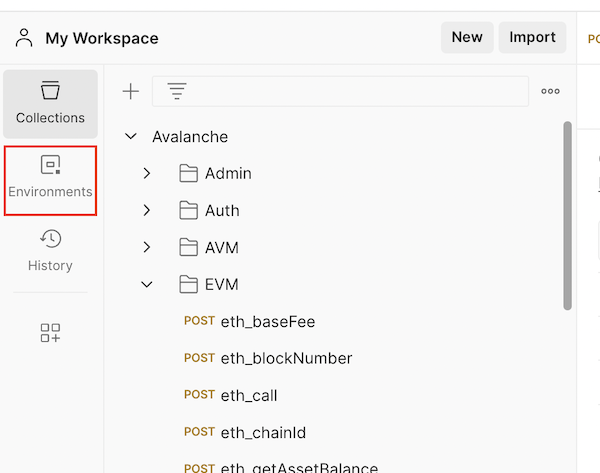
Select Globals

Click on the Add a new variable area
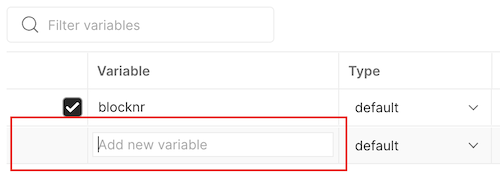
Add the variable name and value. Make sure to use quotes.

Click Save

Now it can be used on any call from any collection
Set a Collection Variable
Click on the three dots next to the Avalanche collection and select Edit
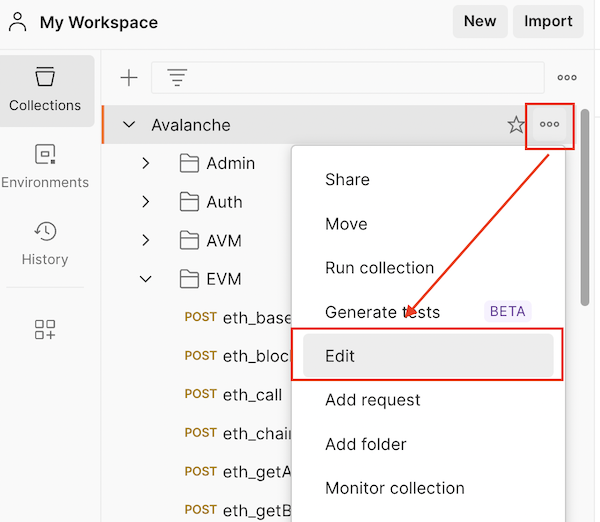
Go to the Variables tab
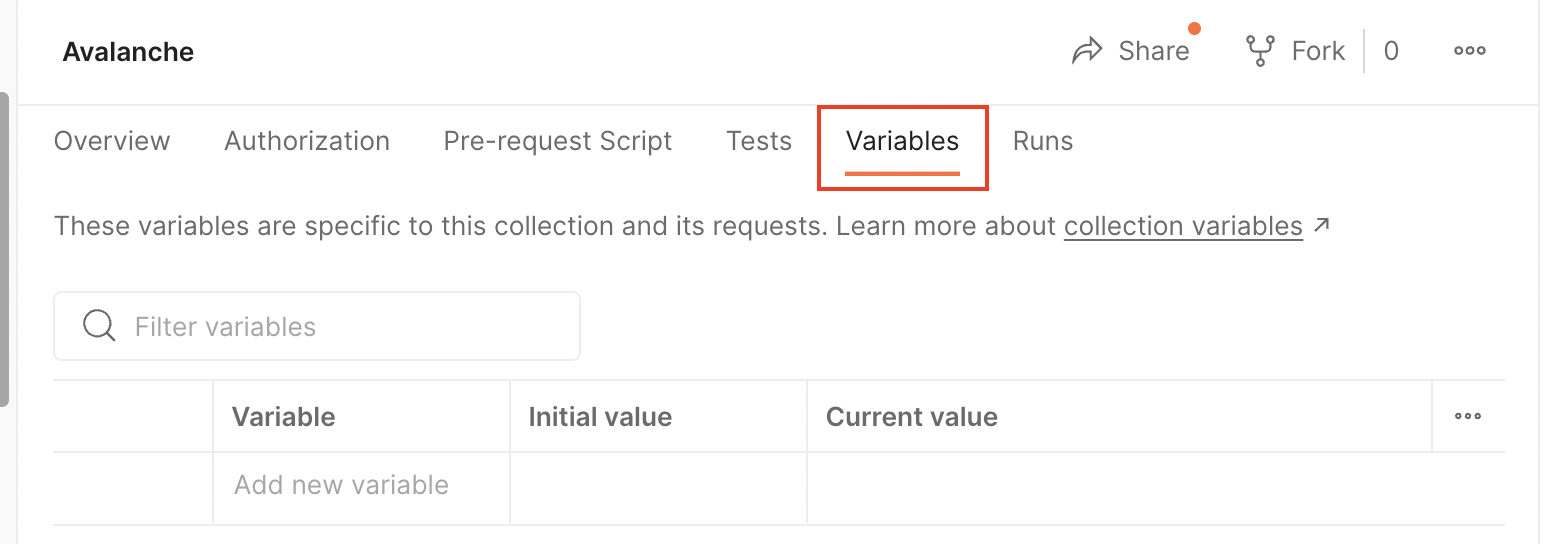
Click on the Add a new variable area

Add the variable name and value. Make sure to use quotes.

Click Save

Now it can be used on any call from this collection
Set an Environment Variable
Go to Environments

Select an environment. In this case, it is Example-Avalanche-Environment.
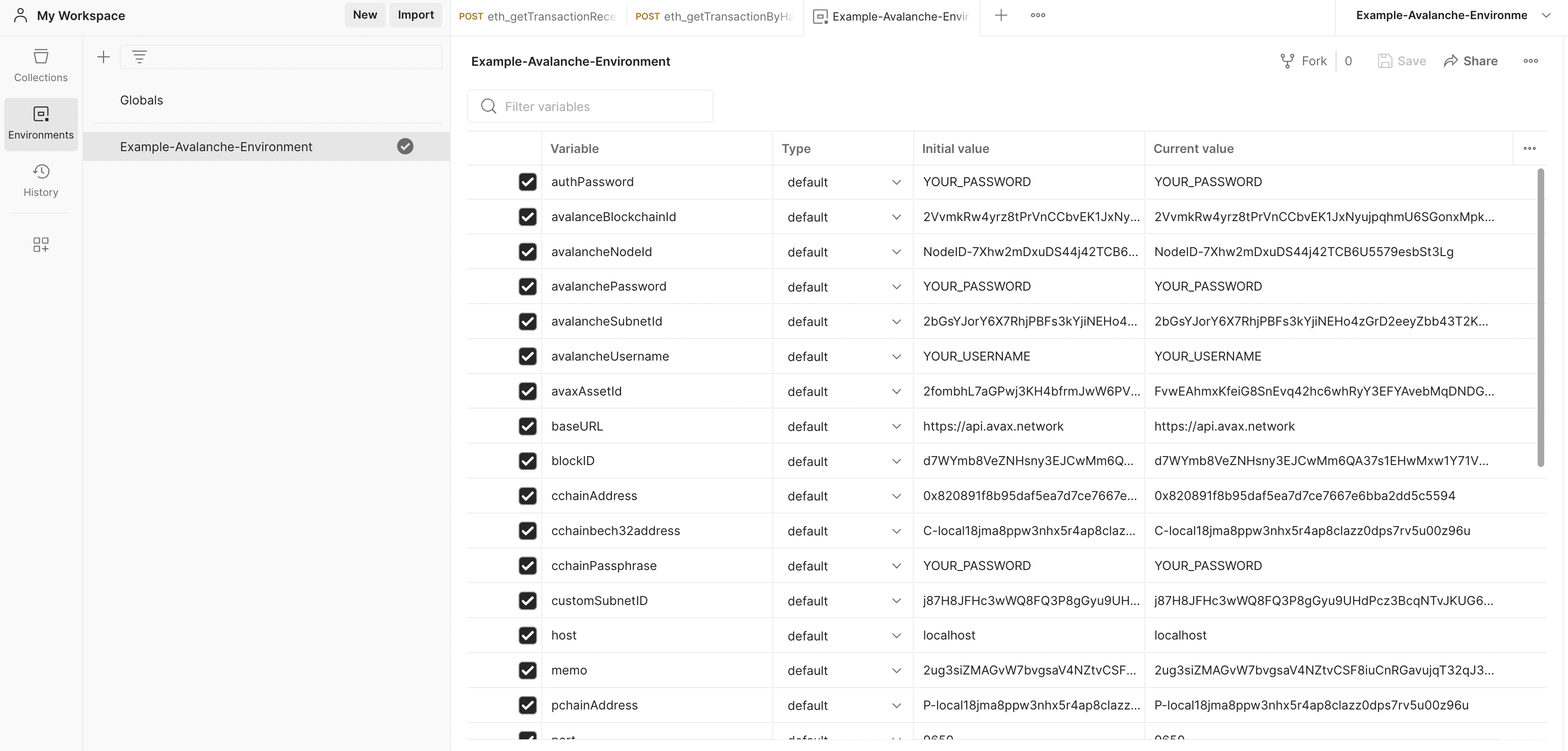
Scroll down until you find the Add a new variable area and click on it.
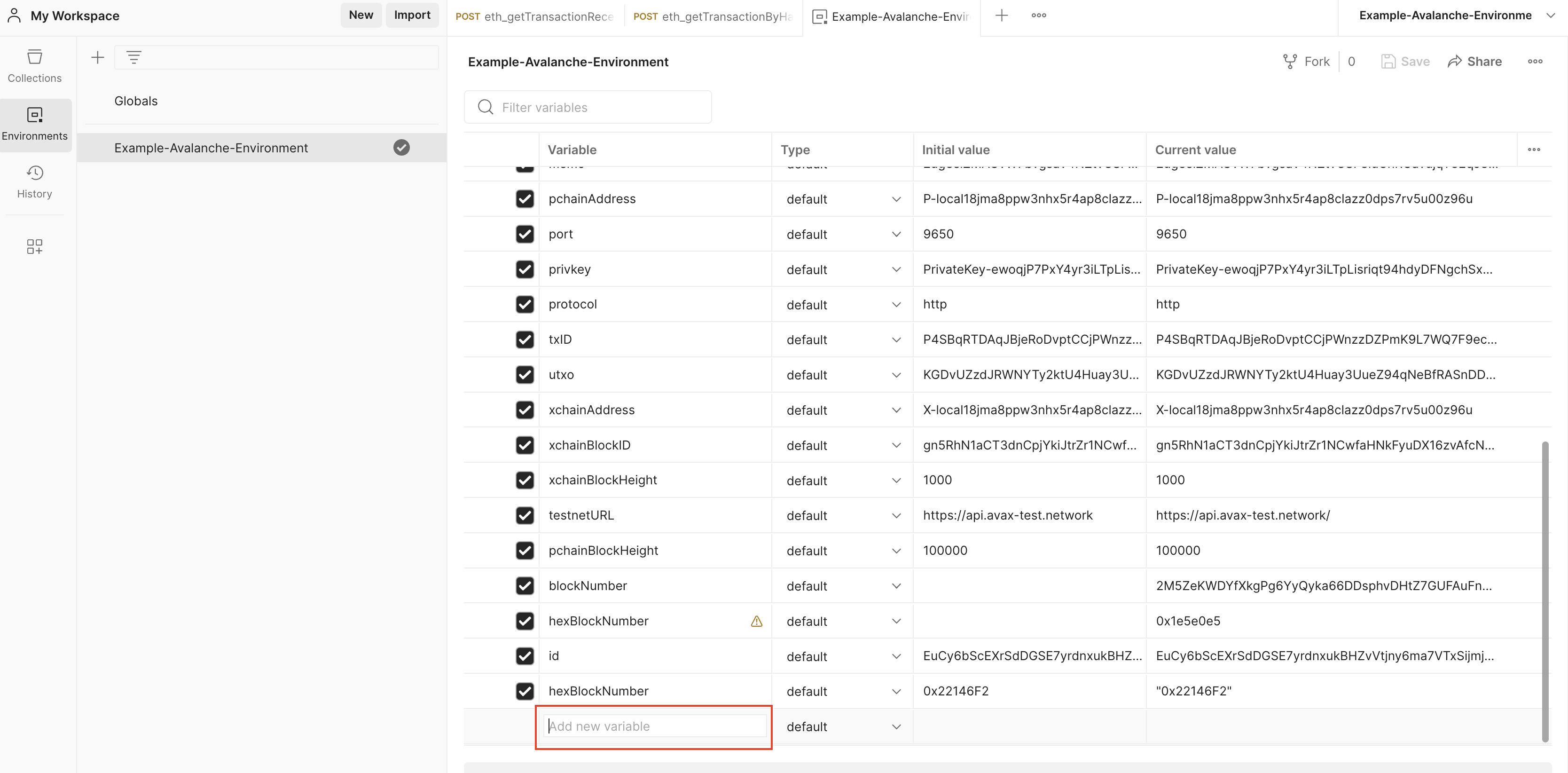
Add the variable name and value. Make sure to use quotes.

Click Save.
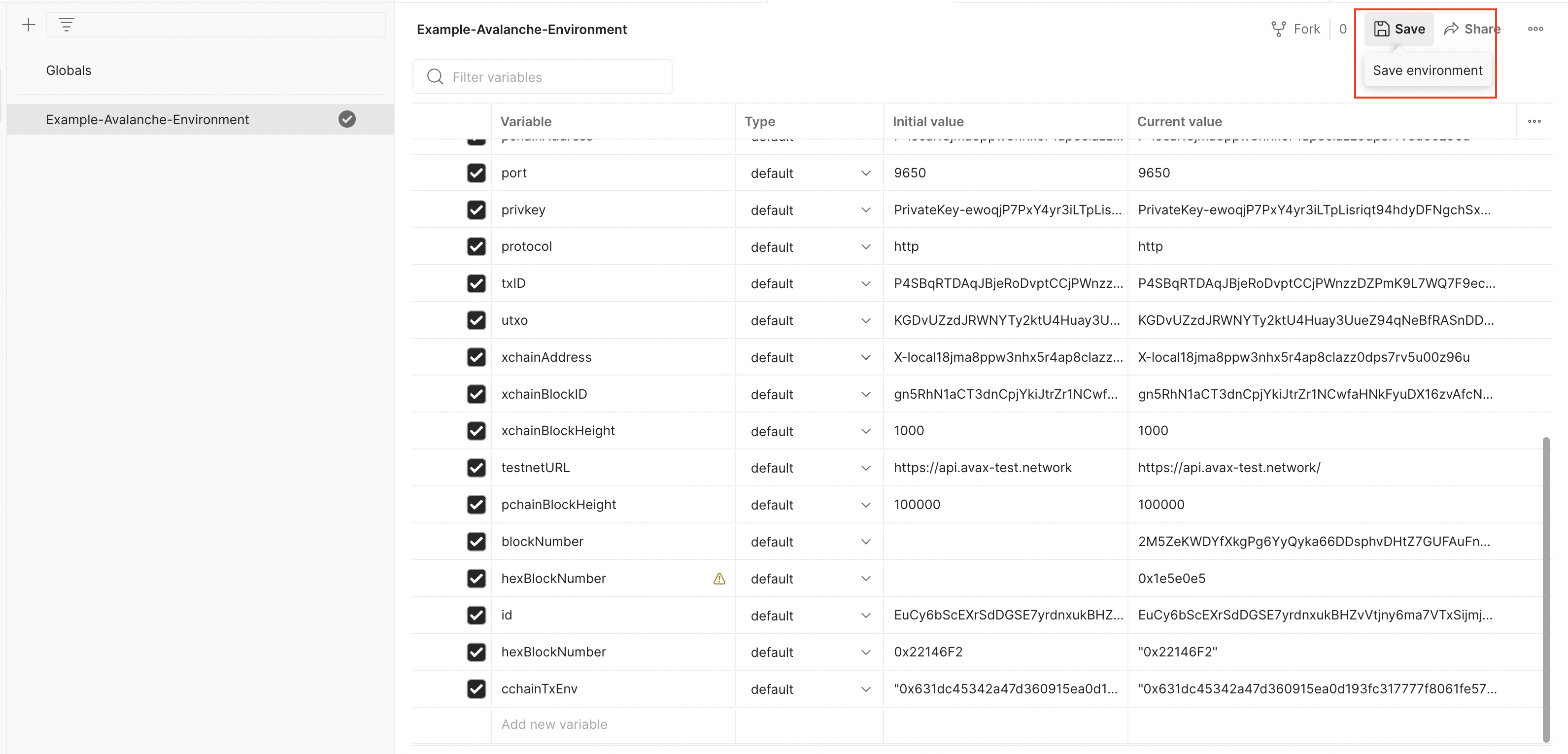
The variable is available now for any call collection that uses this environment.
Set a Data Variable
Please check out this guide and this video on how to use data variables.
Set a Local Variable
Please check out this guide and this video on how to use local variables.
Was this page helpful?